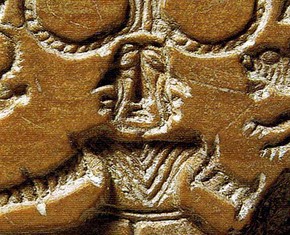The views expressed in our content reflect individual perspectives and do not represent the authoritative views of the Baha'i Faith.
The laws of religion, meant primarily to elevate the human soul, also have another important function—the advancement and protection of civilization.
While a number of the laws of Baha’u’llah’s Most Holy Book offer various avenues of compliance with duly-established legal systems, for a number of reasons the abiding rationale for all variable responses would seem to lie in Baha’u’llah’s demonstration of the fairness, the justice, and the educative function of law in general.
For example, some Baha’i laws involve a minimal standard coupled with a more lofty alternative. Perhaps one of the clearest examples of the fairness and flexibility demonstrated in the Baha’i laws is Baha’u’llah’s commandment that his followers “allow no trace of dirt to be seen upon your garments” – The Most Holy Book, p. 46. He went so far as to state that should the “garb of anyone be visibly sullied, his prayers shall not ascend to God, and the celestial Concourse will turn away from him.” – Ibid., p. 47. But in the midst of discussing this apparently severe consequence for being unmindful of proper decorum and comportment, Baha’u’llah stated “Whoso falleth short of this standard with good reason shall incur no blame. God, verily is the Forgiving, the Merciful.” – Ibid., p. 46.
The overall implication of this law would thus seem to be that God’s justice and mercy consider every deed according to individual motive and extenuating circumstances. This flexibility and justice is the opposite of rigid fundamentalism, as the Guardian of the Baha’i Faith, Shoghi Effendi, pointed out. He said, in regards to the recital of Baha’i prayers, that the Baha’is:
… are thus left to follow their own inclination, … they should take the utmost care that any manner they practise should not acquire too rigid a character, and thus develop into an institution. – Shoghi Effendi, quoted in The Most Holy Book, p. 173.
The Baha’i writings, however, do make clear distinctions between an individual’s behavior and how society as an institution responds in terms of the delivery of justice. In making this distinction, Abdu’l-Baha clarified the purpose of laws themselves. According to Abdu’l-Baha, the first obligation of the administrators of any community involve securing justice and order. In this context, Baha’u’llah admonished:
Beware lest, through compassion, ye neglect to carry out the statutes of the religion of God; do that which hath been bidden you by Him Who is compassionate and merciful. – The Most Holy Book, p. 36.
The best beloved of all things in My sight is Justice; turn not away therefrom if thou desirest Me, and neglect it not that I may confide in thee. By its aid thou shalt see with thine own eyes and not through the eyes of others, and shalt know of thine own knowledge and not through the knowledge of thy neighbor. Ponder this in thy heart; how it behooveth thee to be. Verily justice is My gift to thee and the sign of My loving-kindness. Set it then before thine eyes. – Baha’u’llah, The Hidden Words, pp. 3-4.
Baha’is believe that individuals should demonstrate compassion and forgiveness—but that the larger society needs to have a different response. In short, the purpose of the community as an administrative institution involves providing justice, not mercy and forgiveness. This does not mean society should seek vengeance. As Abdu’l-Baha noted, punishment should never take the form of vengeance or retaliation; rather it is an expression of justice in the broadest sense of the term:
There are two kinds of retributive actions: One is revenge and retaliation, and the other—punishment and requital. An individual has no right to seek revenge, but the body politic has the right to punish the criminal. Such punishment is intended to dissuade and deter others from committing similar crimes. It is for the protection of the rights of man and does not constitute revenge …
The body politic, however, must punish the oppressor, the murderer, and the assailant, to dissuade and deter others from committing similar crimes. But that which is essential is to so educate the masses that no crimes will be committed in the first place; for a people can be so educated as to shrink entirely from any crime, and indeed regard the crime itself as the greatest chastisement and the most grievous torment and punishment. – Abdu’l-Baha, Some Answered Questions, newly revised edition, pp. 309-310.
Furthermore, Baha’u’llah wrote in The Most Holy Book that forgiveness must come from God; one cannot be absolved by confessing sins to others; therefore, forgiveness is not something the community can give, even if it thought it meet to do so.
The penological response of the community is thus seen in The Most Holy Book as distinct from the response of the individual, which, Abdu’l-Baha observed, should be to repay injustice from another with forgiveness and mercy. He explained that the individual Baha’i should do as Christ recommended, to “… act in the opposite manner and show forgiveness, and if possible, be of some assistance to his aggressor.” – Ibid., p. 310. If the victim responds by inflicting harm on the perpetrator, his action is no different from that of the criminal: “The two actions are indeed one and the same: If one is reprehensible, so too is the other. The only difference is that one preceded the other.” – Ibid.
In his Most Holy Book, Baha’u’llah made this same distinction, forbidding the individual to strike another, carry weapons, or take the life of any person:
Ye have been forbidden in the Book of God to engage in contention and conflict, to strike another, or to commit similar acts whereby hearts and souls may be saddened. – The Most Holy Book, p. 72.
However, the response and responsibility of the institutions differs—their responsibility involves protecting the community, while maintaining order, tranquility, and security for those in its care. Consequently, the “constitution of the communities depends upon justice, not upon forgiveness”:
Just as forgiveness is one of the attributes of God’s mercy, so is justice one of the attributes of His Lordship. The canopy of existence rests upon the pole of justice and not of forgiveness, and the life of mankind depends upon justice and not on forgiveness. Thus, if a decree of amnesty were to be enacted henceforth in all countries, the world would soon be thrown into disarray, and the foundations of human life would be shattered. Likewise, if the powers of Europe had not resisted the notorious Attila, he would not have left a single soul alive. – Abdu’l-Baha, Some Answered Questions, newly revised edition, p. 311.
















Comments
Sign in or create an account
Continue with Googleor